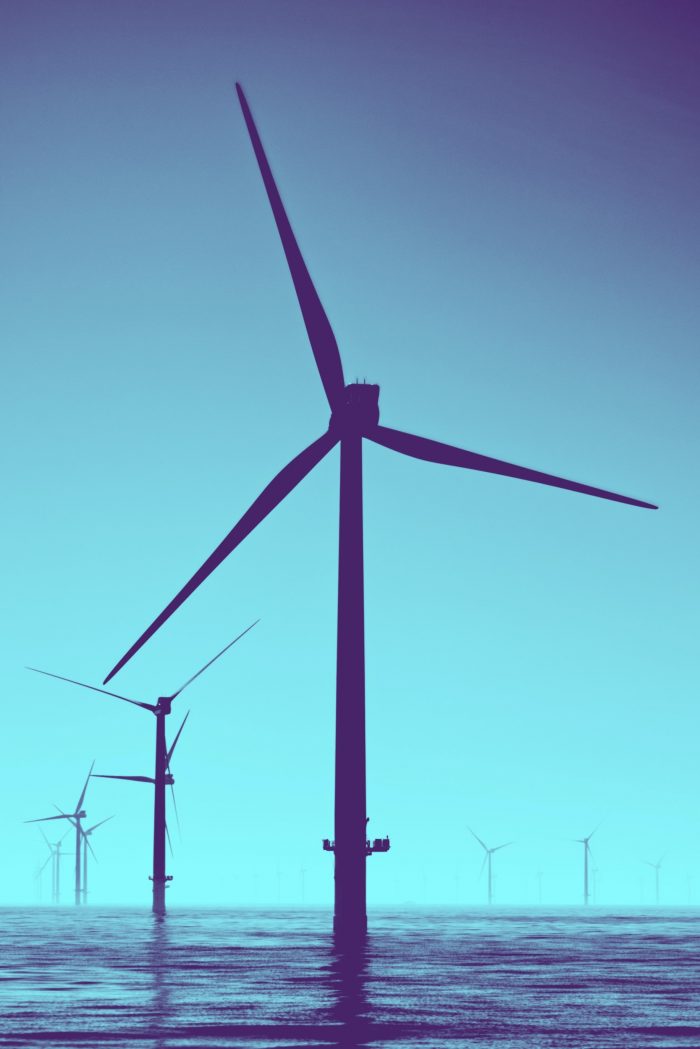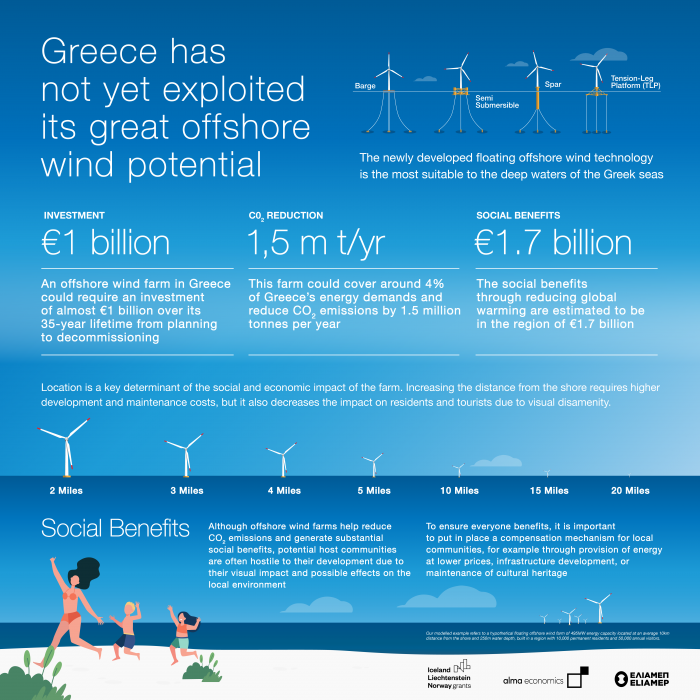Offshore wind energy can play a key role in helping Greece become carbon neutral by 2050. Alma Economics was commissioned by ELIAMEP to explore the socio-economic value that can be generated from floating offshore wind farms in the Greek seas. We develop a Cost Benefit Analysis (CBA) framework which incorporates investment, environmental, social, and economic costs and benefits that can flow from a hypothetical offshore farm to (i) the international community, (ii) Greek society, and (iii) host communities. Our framework explores the welfare gains from reduced CO2 emissions, as well as the welfare losses to local communities and visitors as a result of visual disamenity and environmental effects. The location of the farm directly influences investment costs, as well as the impact on host communities. Location is instrumental in determining whether the benefits from the investment outweigh the costs at the global and national level. Crucially, at the local level, welfare losses to residents highlight the need for providing compensation to local communities in the region where the farm is installed. Key findings from this research and the accompanying CBA framework will support evidence-based decision making about future investments in offshore wind power in Greece.
Executive Summary
Investing in renewable energy is critical if Greece is to meet its 2050 target of net zero carbon emissions. With current discussions focusing on exploiting the country’s offshore wind potential, the relevant legislative framework (to be published in 2021) is expected to promote investment in offshore wind energy in the country.
The newly developed floating offshore wind technology is ideally suited to the deep waters of the Greek seas. A hypothetical floating offshore wind farm of 495MW energy capacity located at an average 10km distance from the shore and 250m water depth is expected to require an investment of almost €1 billion over its lifetime. This farm can create around 2million MWh annually over 25 years, covering around 4% of Greece’s annual energy demand and reducing CO2 emissions by 1.5 million tonnes.
The purpose of this study is to quantify the social impact of offshore wind farms. To this end, we develop a Cost Benefit Analysis (CBA) framework that links investment costs (including construction, operation, maintenance and decommissioning costs) to the economic, social and environmental benefits from offshore wind power. Our CBA framework explores benefits at the global and national level as well as for local communities and visitors to the region where the farm will be built.
Our research suggests that investing in offshore wind power in Greece will create substantial global gains through enabling a reduction in CO2 emissions by replacing energy from conventional sources.
As long as appropriate compensation mechanisms are put in place, offshore wind power can also be beneficial for local communities, which can often be resistant to developments in their area due to the visual disamenity associated with wind farms and the risk of negative impacts on the local environment. In our hypothetical scenario, we estimate the annual welfare loss – and hence required compensation – to local residents to be around €2,500 per person. This compensation could take the form of private compensation, such as provision of energy at lower prices, or public compensation, such as the provision of local public goods (infrastructure development, or maintenance of cultural heritage). A more in-depth study is necessary to determine the best compensation mechanisms.
You may read here the full text of the Policy Paper, along with the Cost-Benefit Analysis Framework.




